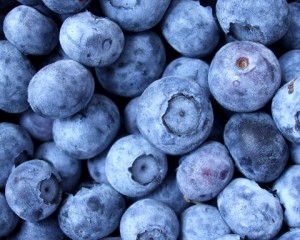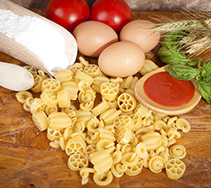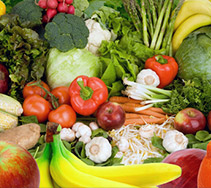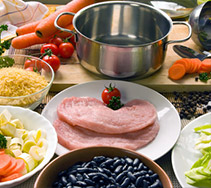Eating is an extremely important part of staying fit and healthy. We need food in order to fuel our bodies for physiological functions, daily activities, and exercise. An automobile, for instance, needs clean gasoline to make it go. Without gasoline, the car will not move. As with our bodies, we need the proper fuel to give us energy to get through our day. Without proper nourishment, our bodies feel tired and run down. Eating foods that are highly processed, full of sugar, and high in saturated fat will certainly make your body feel slow and sluggish. How can you get through a long day of school, work, dealing with your kids, and exercise when proper fueling for your body is not in place? It’s difficult!
If you exercise regularly, your body needs proper nourishment throughout the entire day. Most importantly, immediately following your workout. No matter what type of training you are doing for the day, your body’s nutrients need to be replenished immediately after your training session. Immediately means within 20-30 minutes of finishing the workout. This may be difficult for some of you, however with proper planning you can certainly accomplish this.
After a hard workout, the body is drained of many of the nutrients it needs in order to grow, heal, and become stronger. Complex carbohydrates, protein, fats, vitamins, and minerals are all needed after your workout. These nutrients are vital in helping with repair and recovery of broken down muscle tissue, replenishing drained glucose levels (energy) needed for tomorrow’s workout, and keeping all physiological functions of the body performing with high-efficiency.
This is where the planning comes in to place. If you know you are training tomorrow, then have a pre-packaged meal, or meal supplement, prepared that can be immediately consumed after the workout. Some ideas for a post-workout meal are as follows:
- Protein shake that contains some carbohydrates and plenty of vitamins and minerals. There are so many of these on the market and may be difficult to choose the proper one. Choose one that has whey protein, contains 15-20 grams of protein per serving, has low sugar (less than 15 grams), can be mixed easily with water, and, most importantly, tastes good.
- Broiled or grilled chicken breast and a small, baked, sweet potato.
- Turkey sandwich, with fresh spinach leaves and tomatoes on whole grain bread.
- Natural peanut butter and low sugar preservatives on multi-grain bread.
- Arugula and spinach leaf salad with chopped grilled chicken breast and red, yellow, and orange peppers. Use your favorite dressing sparingly.
These examples of post-workout meals are some of my favorites. There are plenty of choices out there for everyone. Remember, you must plan and prepare ahead of time.
The post-workout meal is one of the most important meals of the day. You are not only replenishing the nutrients you burned up while exercising, you are also fueling your body for tomorrow’s workout. Fueling your body with complex carbs, lean protein, and plenty of vegetables and fruit will have a direct effect on your energy levels, lean muscle mass, and weight loss. So be prepared, have a plan, be consistent, and stay focused with your refueling. You will find yourself increasing your exercise intensity and continually improving your fitness levels.







